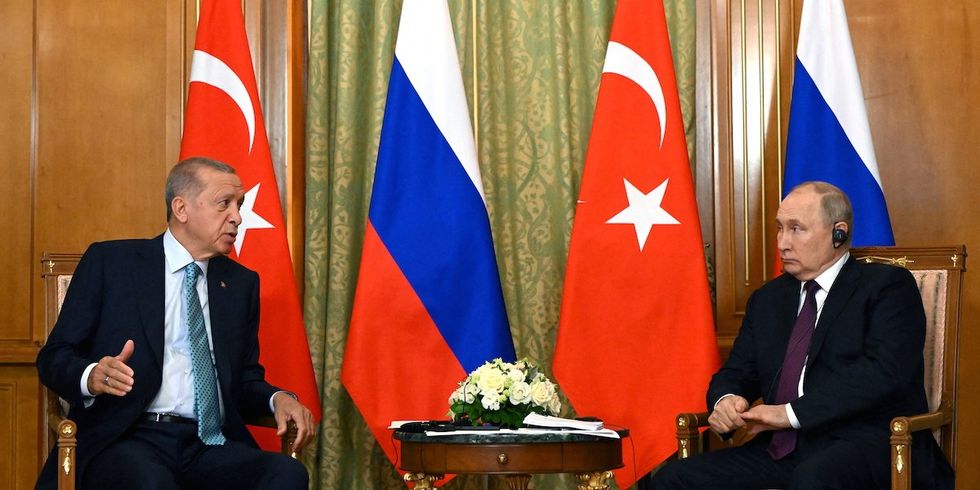Turkish exports of military-tied goods to Russia have spiked this year, sprinkling even more awkwardness atop the already tense state of relations between Ankara and NATO.
Amid the war in Ukraine, the US and its allies have imposed export controls to prevent dual-use items – goods that can be used in civilian and military applications – from reaching Russia. The goal is to throw a wrench in Russia’s war machine by limiting access to items that might aid its military, such as microchips, telescopic sights, and communications equipment.
Turkey, a NATO ally, exported $158 million worth of 45 categories of goods the US deems “high priority” to Russia and five other former Soviet countries between January and September 2023, according to a Financial Times report. That’s three times the level exported during the same period last year.
The number of sensitive goods exported from Turkey to the five ex-Soviet countries reportedly did not line up with their reported imports, raising the question of whether the goods actually went straight to Russia.
Washington’s response: The US has already sanctioned Turkish companies in relation to the war in Ukraine, and it’s conceivable that more private entities could be slapped with economic penalties over the exportation of military-linked goods to Russia. The Turkish government has not embraced Western sanctions against Russia, but its foreign ministry told FT that “strict monitoring and prevention of efforts to skirt sanctions through Turkey is an integral part of our … policy.”
James O’Brien, US assistant secretary of state for European and Eurasian Affairs, on Monday told reporters that Turkey has taken steps to make it more difficult for certain items to transit its territory, but also conceded that “obviously there’s always more to do.”
Brian Nelson, US Treasury under-secretary for terrorism and financial intelligence, meanwhile, is set to visit Ankara and Istanbul this week. During the trip, Nelson will “discuss efforts to prevent, disrupt, and investigate trade and financial activity that benefit the Russian effort in its war against Ukraine,” Treasury said in a statement.






